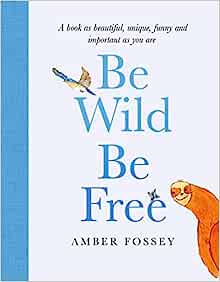As writers, in fact as human beings, we all know that when it comes to doing the really important work that will move us closer to our goals, we suddenly find that the house needs vacuuming or the rabbit needs cleaning out and it simply can’t wait.
Why do we prioritise something trivial for something so important to us? Well it’s cliché to say it, but it does stem from fear and insecurity. As we have vacuumed the house thousands of times and cleaned out the rabbit ever since the kids got the damn thing and promised they would look after it, we know that these are things we can do with no fear of failure; oh, and we can also be a complete martyr about it: “I’ve spent all day cleaning this house and you come home and make a mess; what do you think I do all day, sit and drink coffee?”
When we put off pursuing our ambitions we know we are not helping ourselves to make progress, but the pay-off is that we are on familiar territory and we feel safe. The fear of failure doesn’t really touch us when we are doing what we are familiar with, but if we dare to push the boundaries, our brain goes into overdrive.
One of the many functions of our brain is to keep us safe; it’s not all about learned behaviour such as not putting your hand on a hot iron because it bloody hurts; it’s also about being programmed to survive. This programming has been part of the human brain since early man first started to thrive and survive in hostile environments; extremely important when dealing with marauding animals and battling the elements, but not so important in modern society. The problem is that such deep-rooted programming is ridiculously hard to fight.
How does this have anything to do with writing? Well, being a writer is fundamentally about creating something we are really passionate about, probably something almost as important to us as breathing; it is our baby. When we write our first novel, putting our heart and soul onto those pages, it feels as if we have given birth to something we love deeply. Then we show it to the world and expect everyone to love it as we do; they don’t. Result: major disappointment and the incredible feeling of rejection.
If we took the traditional publishing route we will almost certainly have a drawer full of rejection from agents and publishers, each one telling us in a nice way that our baby is ugly; some don’t even say it nicely. So we learn this is a dangerous thing to do; it hurts. This is where our brain’s programming kicks in and adds writing to the list of things that hurt us; therefore, the next time we decide to start another novel, our brain rushes to protect us from being hurt again and steers us off in the direction of the rabbit cage. The rabbit has never hurt us so we can do that safely.
Okay, I know this seems as if I’m treating a complex issue with not enough reverence; you want to know how to overcome this procrastination problem and reprogram your brain, right? Well, good luck with that and if you find the magic solution, please let me know.
The methods I know that can help are simple: set a workable schedule where you literally sit down at your desk at a certain time, write till a certain time and stick rigidly to that; make yourself accountable to someone to get the job done, for instance, telling a friend that you will write the first chapter of a book and email it to them to read by tomorrow morning or you owe them dinner; get up an hour earlier and use that entire hour to just write, or reverse it if you are an evening person and stay up one hour later; rid yourself of distractions, so if you really can’t write at home because you are too tempted to just put the washing out or just clean the car, grab your laptop or notebook and go somewhere else.
Any tactic to encourage us to write can only work if we are committed to changing our mindset. It’s simple to understand what we need to do, but implementing it is so much harder, particularly when we are fighting against past experience; the only thing that we need to be telling ourselves every single day is that if we keep doing what we love, we will be successful; it just may take a long time. The difference between writers who make a success of their passion and those who don’t is simple perseverance. Yes, there are the odd lightning strikes where a new author gets a million-dollar publishing deal within ten minutes of completing their first novel, but we have to assume that just isn’t going to happen to us. But if we systematically work on our writing, even if it’s for only half an hour a day, we will make progress and start to achieve our goals, but we do need long-term tenacity.
Fighting human conditioning is a battle, but it’s a battle worth fighting. We can be safe today; we can make our house spotless, our car shining and the rabbit happy, or we can tell ourselves that our ambition is too important to set aside for trivial things and make a stand against being held back. The saying ‘Fortune favours the brave’ is absolutely true, but it’s hard to be brave when our brains are busily wrapping fluffy blankets around our feelings to protect us.
So the next time you get the urge to write but suddenly clearing out the shed seems monumentally more important, remember two things:
- It’s a trap.
- Successful writers don’t have tidy sheds.
Trust me, whatever your age, you will never look back over your life and think: ‘Man, I’m so proud that my house was tidy and I successfully kept that damn dust off the skirting.’ Choose to create now what you will be proud to look back on.



